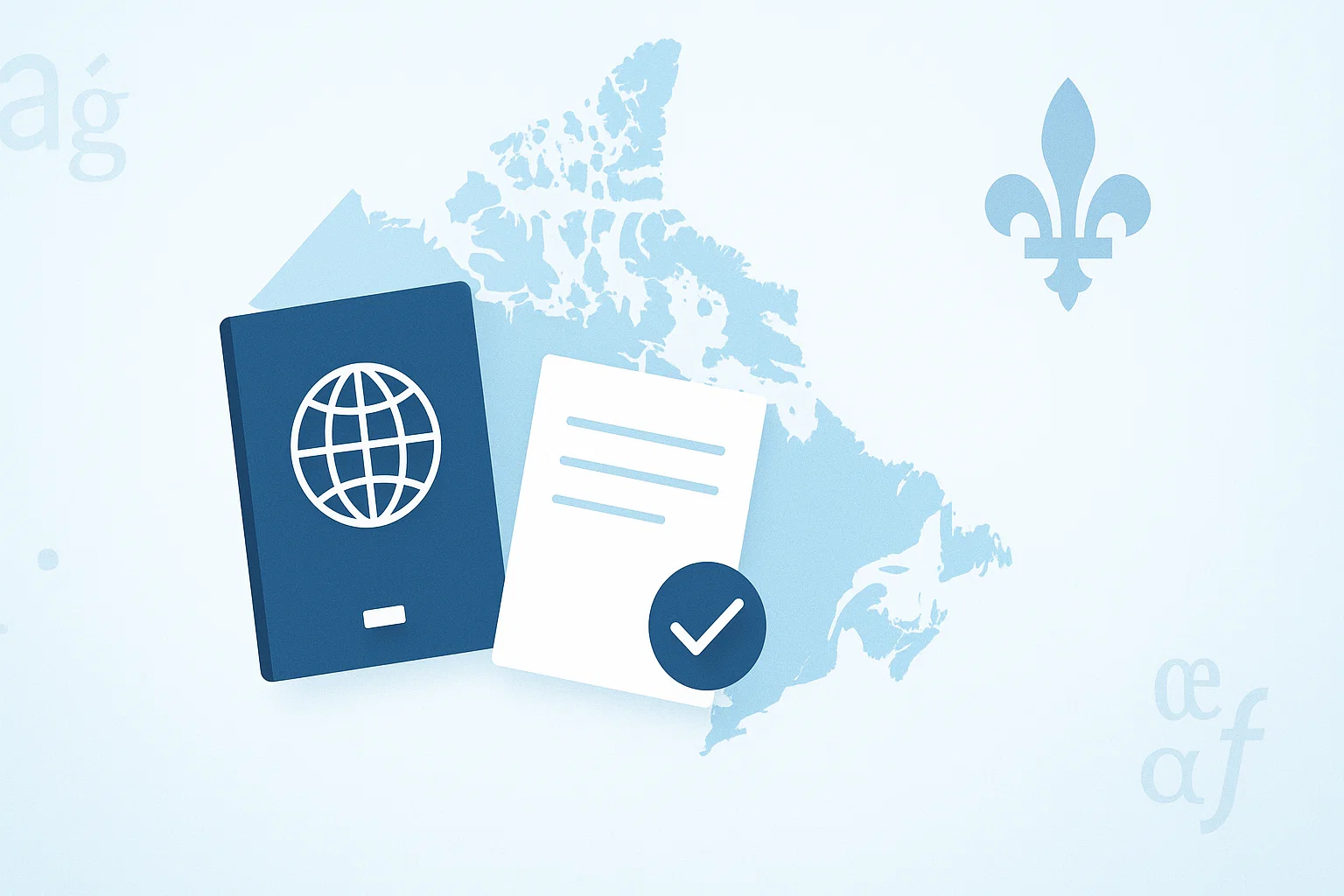In recent years, Canada’s stable social environment, top-tier educational resources, and multicultural atmosphere have continuously attracted immigration applicants from around the world. However, when faced with multiple visa categories, stringent policy requirements, and ever-changing regulations, many aspiring immigrants find the initial application stages confusing. In response, the Canadian government has intensified official information channels and industry oversight mechanisms to guarantee that applicants with immigration plans can proceed through reliable, compliant professional assistance.
At the federal level, Immigration, Refugees and Citizenship Canada (IRCC) serves as the authoritative source of information and policy updates. IRCC provides applicants with timely, comprehensive official resources, including visa category explanations, application form downloads, and the latest invitation thresholds for immigration programs. Yet, in practice, applicants often require solutions and guidance that address their individual circumstances. This is where RCICs, certified by the CICC, play a critical role.
Since November 2021, the CICC has formally taken over industry regulatory functions, implementing stricter standards for licensing and supervising RCICs. Before receiving their licenses, RCICs must complete rigorous professional education and examinations, as well as ongoing professional development, ensuring they remain current with the latest policy changes. When providing consultation and services, they are bound by professional ethics and ethical guidelines, guaranteeing applicants accurate, transparent, and high-quality assistance.
Source: CICC website
Advantages and Professionalism of RCIC-Licensed Consultants
1. Expertise in Laws and Regulations:
RCICs are well-versed in Canadian immigration law and its evolving trends. They offer applicants the most up-to-date and precise policy interpretations, helping them correctly understand requirements and avoid the risk of rejection due to policy misinterpretations, incomplete documentation, or technical errors.
2. Customized Strategies and Planning:
Every applicant’s situation is unique. RCICs tailor immigration plans based on factors such as educational background, work experience, language proficiency, financial status, and family considerations. This personalized approach significantly improves overall application success rates.
3. Comprehensive Support and Assistance:
RCICs offer guidance not only during initial consultations but throughout the entire process. They assist with document preparation, form completion, progress tracking, and responding to inquiries from immigration officers, ensuring a smooth and efficient application process.
4. Strict Oversight and Professional Ethics:
RCICs must adhere to the rigorous professional and ethical standards set by the CICC and participate in regular continued education. If applicants encounter disputes or have concerns during the service, they can file complaints with the CICC, which will provide impartial mediation and resolution. This stringent oversight safeguards applicants’ interests.
In stark contrast are unlicensed immigration intermediaries. Such entities are not subject to official supervision, lack systematic training and compliance mechanisms, and frequently present inaccurate information or inappropriate practices, even exposing applicants to potential legal risks. Should applicants experience financial losses or disputes with unlicensed agents, they typically have no formal avenues for complaints or compensation.
RCIC vs. Unlicensed Intermediaries: Key Advantages
1. Legality and Compliance:
RCICs undergo stringent vetting by the CICC and obtain professional licenses. They are bound by Canadian laws and regulatory bodies, ensuring adherence to professional standards. Unlicensed intermediaries, lacking official credentials, cannot guarantee the quality or reliability of their advice and services.
2. Professional Knowledge and Continuous Improvement:
Licensed RCICs must continually update their knowledge to keep pace with changing Canadian immigration policies. This ensures applicants receive real-time, accurate policy information and application strategies. Unlicensed agents, often lacking systematic training and ongoing education, provide outdated or inaccurate information that can lead to application failure.
3. Integrity and Ethical Standards:
RCICs follow strict professional conduct and ethical guidelines, backed by comprehensive complaint and disciplinary procedures that protect clients’ rights. Unlicensed intermediaries may engage in exaggeration, misrepresentation, or even fraud. In the event of disputes or financial harm, applicants dealing with unlicensed agents typically have no effective means of recourse or compensation.
4. Risk Control and Accountability:
As they are regulated by the CICC, RCICs bear corresponding responsibilities and risk-control measures, including professional liability insurance and dispute resolution processes. If any errors or misconduct occur, applicants can seek redress through legitimate channels. In contrast, cooperating with unlicensed agents lacks such risk mitigation frameworks, leaving applicants vulnerable to potential losses.
Why Not Choose Unlicensed Immigration Intermediaries?
- Lack of Transparency: Unlicensed agents may provide false or outdated information, leading to application failure or unnecessary financial losses.
- No Regulatory Protection: Their services are not supervised by the CICC or other official bodies. If disputes arise, applicants find it difficult to pursue legal remedies.
- Potential Non-Compliance Risks: Unlicensed intermediaries might submit false documents or inaccurate statements. If discovered by Canadian immigration authorities, not only will the application be rejected, but the applicant’s credibility could be permanently tarnished, affecting future visa and immigration applications.
For applicants eager to improve their success rates and reduce the unnecessary repetition of effort, seeking assistance from an RCIC has become the mainstream choice. RCICs, thoroughly versed in regulations and policies, develop tailored strategies based on an applicant’s educational background, work experience, language ability, and family situation. They help prepare documents, respond to immigration officer inquiries, and track progress, ensuring that the entire application process is compliant and efficient.
Conclusion
The complexity of Canadian immigration policies and procedures makes professional and compliant consultation and support absolutely crucial. While IRCC provides authoritative information, the CICC’s stringent oversight and RCIC certification ensure that applicants receive high-quality, reliable consulting services. Compared to unlicensed intermediaries lacking supervision and credentials, opting for an RCIC guarantees not only service quality and information accuracy but also protects the applicant’s rights and paves a stable pathway toward the future in Canada. Partnering with an RCIC not only significantly enhances the likelihood of successful applications but also lays a solid and trustworthy foundation for a new life in Canada.









